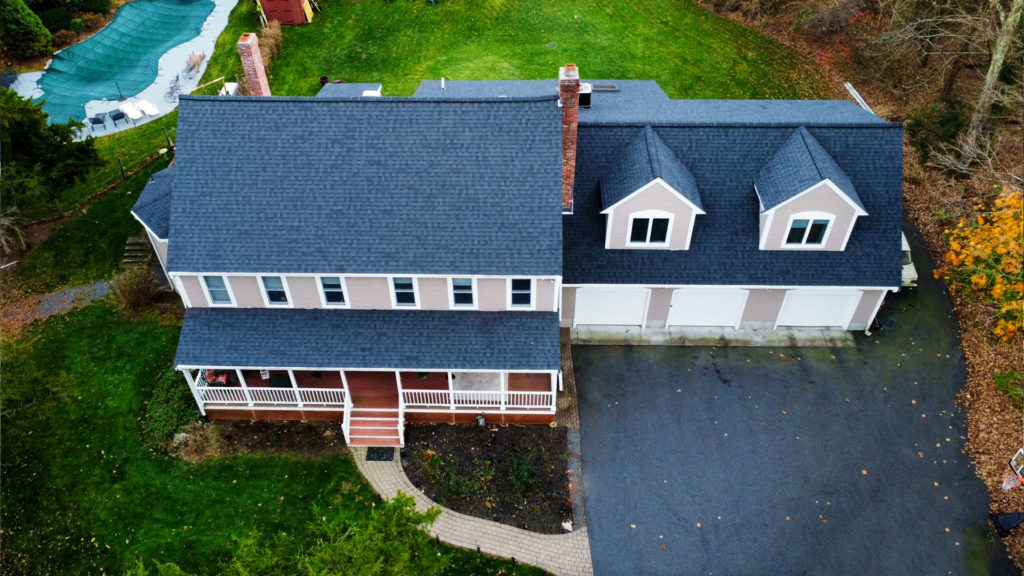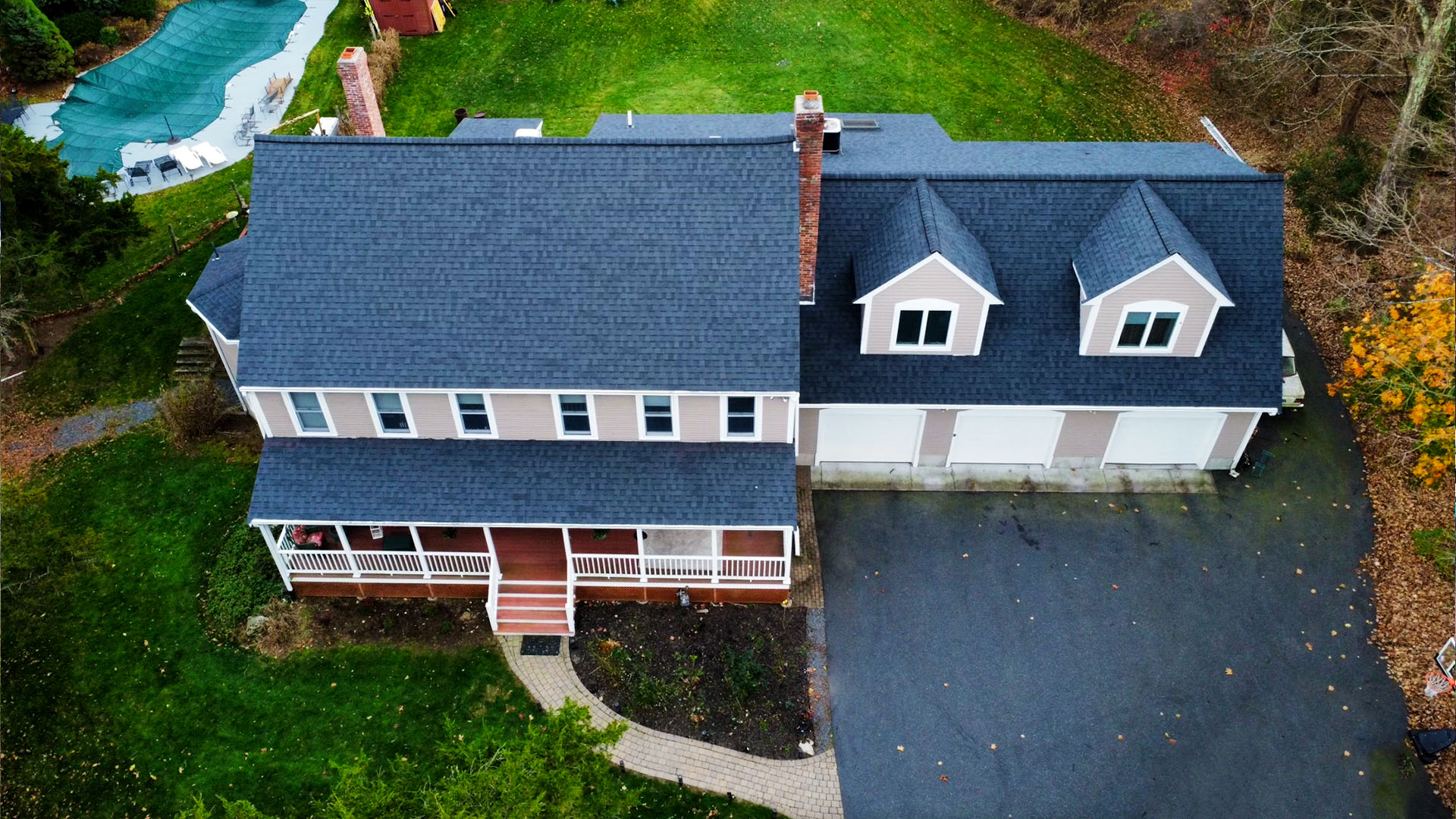Is my roof a good fit for solar? Things to consider in 2023.
Installing solar panels on your roof is an exciting opportunity to not only save money on your energy bills, but also reduce your carbon footprint and contribute to a cleaner and more sustainable future. Not every roof is a great fit for solar panels, but yours might be! There are several factors to consider when determining whether your roof is suitable for solar panels, including orientation, shading, age and condition, local building codes and regulations, and available roof space. In this article, we’ll explore these factors and provide some helpful tips for evaluating whether your roof is ready for solar panels.
Ready to take the plunge and join the solar revolution? Great! Before you get started, it’s important to remember that every home and roof is unique, and what makes a roof a good fit for solar panels can vary widely. But by considering these key factors, you’ll be well on your way to determining whether solar panels are the right choice for your home. So let’s get started and find out if your roof is solar panel ready!
Need some help? We can take a look at your roof from a satellite view and get back to you with a free solar savings report.
Roof orientation: Which direction should solar panels face?
Solar panels are most efficient when they are installed on a south-facing roof. This is because the sun is in the southern sky for most of the day, and a south-facing roof will receive direct sunlight for a longer period of time. If your roof is facing in a different direction, such as east, west, or north, it’s still possible to install solar panels – and still save money – but they may not be as efficient. The efficiency of solar panels can also be affected by the angle of the roof.
A roof with a steeper angle will receive more direct sunlight, which can lead to higher levels of solar energy production. This can be especially beneficial in the winter months, when the sun is lower in the sky and may not reach the panels as directly. On the other hand, a roof with a shallower angle may receive less direct sunlight, but can still be a good choice for solar panel installation depending on the specific location and climate. Overall, the roof angle and orientation is an important factor to consider when evaluating the potential for solar energy production, and can help ensure that the solar panels are as effective as possible at capturing the sun’s energy.
Roof shading: Effect of shading on solar panels
Solar panels are most efficient under direct sunlight. So it is important to ensure that your roof is not shaded by trees or other objects. If your roof is partially shaded, it may still be possible to install solar panels, but they may not be as efficient. For example, if your roof is shaded for a few hours a day, the solar panels may still be able to generate a significant amount of electricity. However, if your roof is heavily shaded for most of the day, the solar panels may not be able to generate much electricity at all.
But, trees aren’t always bad when it comes to solar shading. They can help to cool your home during hot summer days, which is something that we always consider when designing solar panel systems. Curious whether some nearby tree are affecting your solar panel production? Let us take a look to see if tree trimming could help you save money.
Roof age and condition: Do you need a new roof to go solar?
It is important to ensure that your roof is in good condition before installing solar panels. If your roof is older or in poor condition, it may need to be repaired or replaced before solar panels can be installed. This is because solar panels need a stable and secure foundation to be effective. If your roof is not in good condition, it may not be able to support the weight of the solar panels, or the panels may not be properly sealed to the roof, which could lead to leaks or other problems.
So, how do you know if you need a new roof before installing solar panels? Generally speaking, if your roof is less than 15 years old, you are good to go! This is because your solar panels will help to protect your roof from the elements and extend the life of your roof. For roofs older than 15 years, we usually recommend replacing the roof when installing the solar panels. Keep in mind we always thoroughly inspect the roof before installing the panels.
Can you get a new roof and solar panels at the same time?
Yes! It’s super common for homeowners to get a new roof and solar panels at the same time. At Evergreen Solar, we bundle roof + solar to make it easy for our customers to make the switch to solar when they need their roof replaced. So we handle both the roof replacement and the solar installation as part of the same project, which saves you time and money. The best part is that customers who bundle usually end up with a solar payment that is 30%-50% lower than their electric bill – even with the new roof.
Click here to see if our Roof + Solar Bundle is right for you.
Local building codes and regulations
Be sure to check with your local building department to ensure that installing solar panels on your roof is allowed and complies with local building codes and regulations. Some areas have specific requirements for solar panel installation, such as the type of materials that can be used or the minimum distance the panels must be placed from the edge of the roof. Failing to comply with these regulations could result in fines or other penalties. Not sure who to ask? No worries, we can check for you during your discovery call.
Available roof space
You will need to have enough space on your roof to install the solar panel system. The size of the solar panel system you need will depend on your energy needs and the amount of available roof space. If you have a large roof, you may be able to install a larger solar panel system, which could generate more electricity. However, if you have a smaller roof, you may need to limit the size of the solar panel system to ensure that it fits on your roof.
Remember – more panels isn’t always better. You only need enough to produce the amount of power that you are using (or slightly more if you are planning to add some electronics in the future). So we find that homes with a smaller roof are still able to save significantly simply because a smaller home (usually) means a smaller electric bill. We’re happy to take a look at your electric bill to give you an idea of whether or not you would be able to save if you made the switch to solar.
Cost of Electricity in Your Area
Electric cost is one of the most important things to consider when asking if your roof is a good fit for solar. In general, the higher the cost of electricity, the more solar panels can potentially save on energy bills. For example, if electricity costs are high in your area (like they are in Massachusetts and the rest of New England), installing solar panels may allow you to significantly reduce or even eliminate your energy costs.
In addition to the direct financial benefits, the cost of electricity in your area can also affect the payback period for a solar panel installation. The payback period is the length of time it takes for the energy savings from the solar panels to offset the upfront cost of the installation. In areas with higher electricity costs, the payback period may be shorter, meaning that it will take less time to recoup the initial investment in the panels. This can make solar panel installation more attractive and financially feasible in these areas.
Your Roof Might Be a Good Fit!
In the ned, whether or not a roof is a good fit for solar panels depends on several factors, including the angle of the roof, the available roof space, and the specific location and climate. By considering these factors and working with a reputable solar panel installation company, homeowners and businesses can determine if solar panels are a viable and cost-effective option for their energy needs.
Overall, installing solar panels can be a smart and rewarding decision that can provide long-term benefits for both the homeowner and the environment. In addition to potentially lowering energy bills and reducing reliance on fossil fuels, solar panels can also increase the value of a home and help reduce carbon emissions. So if you’re considering whether or not your roof is a good fit for solar panels, it’s worth exploring the options and weighing the potential benefits.



